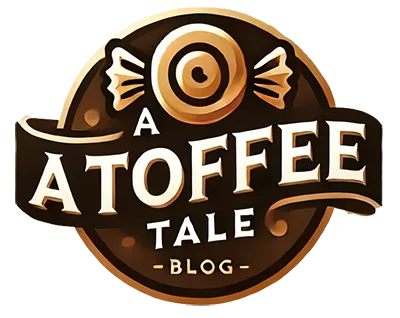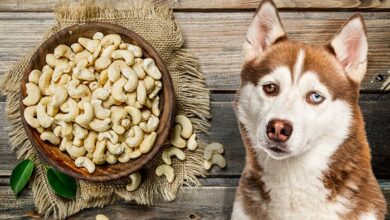Can Dogs Eat Grits? Risks, Benefits, and Expert Tips-2024

Can Dogs Eat Grits? Grits are made from ground corn and are a staple in Southern cuisine. People often enjoy them as a savory or sweet dish, typically cooked with butter, cheese, or seasonings. Grits are high in carbohydrates and have a soft, porridge-like texture when cooked.
If you’re wondering whether it’s safe to share grits with your dog, it’s important to consider a few things. In this guide, we’ll look at whether dogs can eat grits and the best ways to serve them safely if you choose to do so. Let’s briefly discuss that- Can Dogs Eat Grits?
Are Grits Safe for Dogs? Can Dogs Eat Grits?
When it comes to can dogs eat grits? it’s important to consider what type of grits you’re offering and in what amounts. Grits can be safe for dogs if prepared correctly, but they should not be a regular part of their diet.
Plain, Cooked Grits
- Safe in Moderation: Plain, cooked grits are safe for dogs as an occasional treat. They can be given in small portions without any major concerns.
- No Additives: When served plain, grits are a simple carbohydrate and pose no immediate danger to your dog.
Seasoned or Flavored Grits
- Avoid Toxic Ingredients: Grits with garlic, onion, or excessive salt can be harmful and even toxic to dogs. These ingredients can cause digestive problems and more serious health issues.
- Flavorings to Watch Out For: Butter, cheese, and other seasonings might also upset your dog’s stomach or contribute to weight gain, so it’s best to keep them out of your dog’s grits.
Grits Are Not Essential
- Occasional Treat: Grits are not a necessary part of a dog’s diet. While they may be enjoyed from time to time, there are better, more nutritious options to offer as regular treats.
- Not a Regular Treat: Grits should not become a daily snack. Stick to healthier, more nutritionally balanced foods for your dog’s overall well-being.
Can dogs eat grits? Yes, but only plain, cooked grits and in moderation. Always avoid adding any harmful seasonings, and remember, they’re not a must-have for your dog’s diet. Keep them as an occasional treat and opt for more nutritious alternatives for your dog’s everyday meals!
The Nutritional Value of Grits for Dogs
When considering whether can dogs eat grits? it’s important to evaluate their nutritional value. While grits are not harmful in small amounts, they don’t provide much nutritional benefit for your dog. Here’s a breakdown of the key nutrients in grits:
Carbohydrates
- Energy Source: Grits are primarily made up of carbohydrates, which can provide energy to your dog. However, they are mostly empty calories and lack the essential nutrients that dogs need for overall health.
- Potential Weight Gain: Because grits are high in carbs, feeding them too frequently can contribute to weight gain if your dog doesn’t burn off the extra energy.
Low Protein Content
- Not a Protein Source: Grits are very low in protein, and dogs need protein for strong muscles, healthy growth, and overall well-being. Without sufficient protein, your dog may face issues with muscle maintenance and energy levels.
- Incomplete Diet: Grits do not contribute to meeting the protein requirements in your dog’s diet, making them less beneficial compared to protein-rich foods.
Lack of Essential Nutrients
- Missing Vitamins & Minerals: Grits do not offer the essential vitamins and minerals that are critical for a balanced canine diet. These nutrients help support your dog’s immune system, skin health, and overall vitality.
- Better Alternatives: For a well-rounded diet, focus on foods that provide the nutrients your dog needs, such as high-quality meats, vegetables, and other nutrient-dense foods.
Can dogs eat grits? While plain, cooked grits are safe in small amounts, they don’t offer much in terms of nutritional benefits. They are high in carbs but low in protein and essential nutrients. Grits should not be a major part of your dog’s diet—better options exist for supporting your dog’s health and well-being!
Health Risks of Feeding Grits to Dogs
While can dogs eat grits? it’s important to understand the potential health risks involved. Feeding grits to dogs in excess or with certain additives can lead to various health problems. Here are the key risks:
Weight Gain
- High in Carbs: Grits are packed with carbohydrates, which provide energy but can also contribute to weight gain if fed too often.
- Obesity Risk: Regularly feeding your dog grits may lead to obesity, especially if combined with a lack of physical activity. It’s important to keep an eye on your dog’s weight and avoid overfeeding.
Digestive Issues
- Additives Can Harm: Grits that contain butter, cheese, salt, or other seasonings may cause digestive discomfort in dogs. These ingredients can lead to stomach upset, diarrhea, or vomiting.
- Sensitivity to Dairy: Many dogs are lactose intolerant, and adding dairy to grits can worsen these issues.
Corn Allergies
- Sensitivity to Corn: Some dogs may have allergies or sensitivities to corn, which is the primary ingredient in grits.
- Signs of Allergic Reaction: Symptoms of a corn allergy can include skin rashes, itching, ear infections, or digestive issues. If your dog shows any of these signs after eating grits, it’s best to avoid them in the future.
While can dogs eat grits in moderation, it’s crucial to avoid overfeeding them and watch out for potential digestive or allergy-related issues. Stick to plain, small portions of grits and keep a close eye on your dog’s health. For long-term well-being, it’s best to feed your dog a balanced diet that meets their specific nutritional needs.
Expert Tips for Feeding Grits to Dogs
Can Dogs Eat Grits? If you decide to offer grits to your dog, following a few simple guidelines can ensure it’s a safe and enjoyable treat. Here are some expert tips to keep in mind:
Serve Plain Grits
- No Additives: When preparing grits for your dog, cook them using just water. Avoid adding butter, cheese, salt, or any seasonings, as these can be harmful to your dog’s health.
- Keep it Simple: Plain grits are much safer and easier for your dog’s digestive system to handle.
Portion Control
- Small Amounts: Grits should be an occasional treat, not a regular part of your dog’s diet. Offer only small portions to prevent weight gain and other health issues.
- Balance: Keep grits as a rare snack and make sure it doesn’t replace essential meals or nutrients in your dog’s diet.
Monitor for Reactions
- Watch for Discomfort: Keep an eye on your dog after introducing grits. If they show signs of digestive upset, such as vomiting, diarrhea, or lethargy, stop feeding them grits immediately.
- Allergy Symptoms: If your dog experiences itching, rashes, or ear infections, it could be a sign of a corn allergy.
Consult a Veterinarian
- Professional Advice: Always check with your vet before introducing new foods to your dog, especially if your pet has underlying health issues like allergies or digestive sensitivities.
- Tailored Diet: Your vet can guide you on the best foods for your dog’s specific nutritional needs.
When asking can dogs eat grits? it’s important to offer them cautiously and in moderation. By following these expert tips, you can minimize potential health risks and make sure your dog enjoys their treat safely. Always prioritize your dog’s well-being and consult with your veterinarian if you’re ever unsure.
Healthy Alternatives to Grits for Dogs
Can Dogs Eat Grits? While grits can be a safe occasional treat for dogs, there are healthier and more nutritious alternatives that provide better benefits for your pet. Here are some great options to consider:
Sweet Potatoes
- Nutrient-Rich: Sweet potatoes are packed with fiber, vitamins, and minerals like beta-carotene, which support overall health and digestion.
- Easily Digestible: They’re gentle on your dog’s stomach and are often recommended for dogs with digestive sensitivities.
- Health Benefits: Sweet potatoes help promote a healthy coat, support immune function, and aid in regular bowel movements.
Rice
- Gentle on the Stomach: Plain cooked rice, especially white rice, is easy to digest and is a good choice for dogs with upset stomachs or sensitive digestive systems.
- Balanced Carbs: Rice provides a mild source of energy without overwhelming your dog’s system.
- Versatile: It can be paired with lean protein (like chicken) to make a balanced meal for your dog.
Oatmeal
- High in Fiber: Oatmeal provides soluble fiber that promotes healthy digestion and can help regulate bowel movements.
- Better Nutritional Profile: Unlike grits, oatmeal contains more essential nutrients like vitamins B and E, and it’s a great option for skin health.
- Similar Texture: Oatmeal offers a similar soft texture to grits, making it an easy-to-eat choice for dogs.
Can Dogs Eat Grits? If you’re considering alternatives to grits for your dog, sweet potatoes, rice, and oatmeal are all excellent options that provide better nutritional value. These choices support your dog’s digestion, energy levels, and overall health while being gentle on their stomach. Always remember to introduce any new food slowly and consult your veterinarian if you’re unsure about what’s best for your pet.




